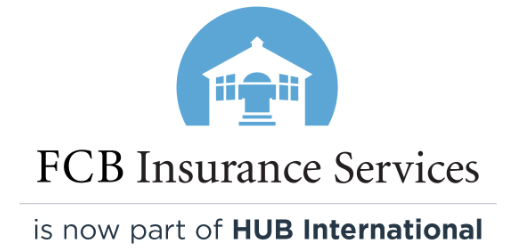How Business Interruption Impacts Your Supply Chain
Hurricanes Harvey, Maria, Irma and Nate caused massive destruction when they landed in the United States in 2017 and resulted in over $200 billion in damage. When weather events like this occur nearby, you naturally worry about how to keep your business running amid the devastation. Even if your business isn’t directly impacted, the delivery of your products and parts could be severely affected.
But severe weather and natural disasters aren’t the only events that can impact your supply chain. Consider transportation failures like cargo theft, road closures, freight damage – or the shipping container vessel, Ever Given, which ran aground and blocked all passage through the Suez Canal.
The Canal hosts a daily average of 50 shipping vessels with an estimated combined cargo value exceeding $9 billion per day, according to Lloyds List on March 25, 2021. Over 200 shipping vessels were halted on either side of the canal, awaiting clearance. Vessels not caught in the immediate traffic jam scrambled to find new travel routes (and that's not cheap) or decided to wait it out, despite the delay. The losses from the Suez Canal blockage remain unknown but estimates are at $60 billion and counting.
Volatile and unpredictable markets can also lead to increased cost of raw goods, causing undue influence on your supply chain.
Cyberattacks and computer hacking topped the list of events that impacted supply chain operations over previous years, according to a 2018 report by Supply Chain Insights. Even geopolitical instability – riots, protests, wars – can have an effect.
Supply chain disruptions continue to grow at an alarming rate, based on the 2018 EventWatch® Supply Chain Distribution Report. The report highlights that of the 1,069 supply chain disruption events recorded over a six-month period, more than 300 directly impacted supply continuity.
But 2020 highlighted the interdependency of local businesses and global supply chains more than any year yet studied. This clearly means that it’s not a case of if your business will experience a disruption, but when.
So what can you do to keep your business running smoothly despite external, unavoidable factors that can impact your supply chain? Assess how many exposures you have in your supply chain, plan for alternate suppliers and insure against the risks you can’t avoid.
Specialty insurance policies
Specialty insurance products like contingent business interruption (CBI) insurance and supply chain insurance can help by reimbursing you for lost profits or other costs. Here are the two products explained.
Contingent business interruption insurance
This is a great option to protect your business against losses caused by interruptions at supplier locations, but it’s limited in its coverage. CBI insurance only provides coverage if your suppliers’ businesses are disrupted by physical property damage – a factory fire, for example. CBI insurance doesn’t protect against all disruptions, such as road closures. Also, when purchasing CBI you may be required to identify your suppliers and if you change suppliers, you need to update your policy to secure ongoing coverage.
Supply chain insurance
Where CBI insurance is more specific in its coverage, supply chain insurance is much broader. It not only covers disruptions caused by physical property damage to your suppliers, but it also covers a wide range of events, such as road closures, riots, wars, geopolitical events and severe weather. In addition, supply chain insurance can cover labor issues, like strikes, regulatory action, industrial accidents, financial issues and production process problems.
Many insurance companies offer multi-tier coverage so that your entire supply chain is covered. If your business has multiple layers of suppliers, you may want to ask your insurance professional if multi-tier coverage is offered. Otherwise, only disruptions caused by your first-tier supplier will be covered.
COVID-19 has triggered multiple lawsuits over insurance and exclusion scenarios. Supply chain insurance is broader and is intended to cover interruptions to business caused by a disruption in the supply chain itself and doesn’t normally require a loss to your physical property (unlike commercial general liability or business interruption). Talk to your insurance professional about any policy exclusions and aggregate limits before assuming coverage.
Review your business insurance coverage
As you focus on the day-to-day operations of your company, it would be reassuring to know that your business owners policy or general liability insurance would protect your business location if it sustained any damage from unforeseen circumstances. But the nature of business today is such that your company is likely part of an extensive network beyond the four walls of your location.
Speak with your insurance professional about contingent business interruption (CBI) or supply chain insurance to limit the impact of supply chain disruption and ensure your business continuity is unhindered.
This content is for informational purposes only and not for the purpose of providing professional, financial, medical or legal advice. You should contact your licensed professional to obtain advice with respect to any particular issue or problem.
Copyright © 2021 Applied Systems, Inc. All rights reserved.

